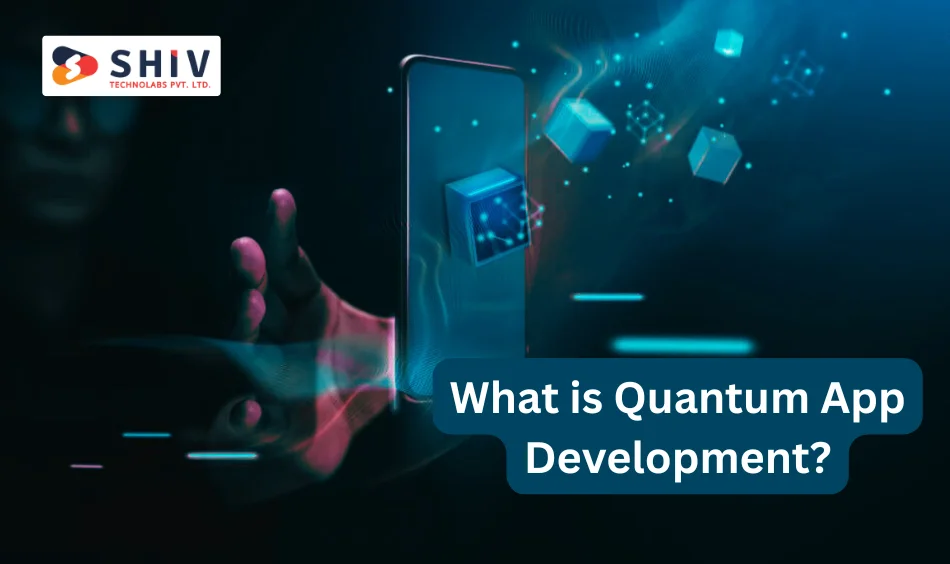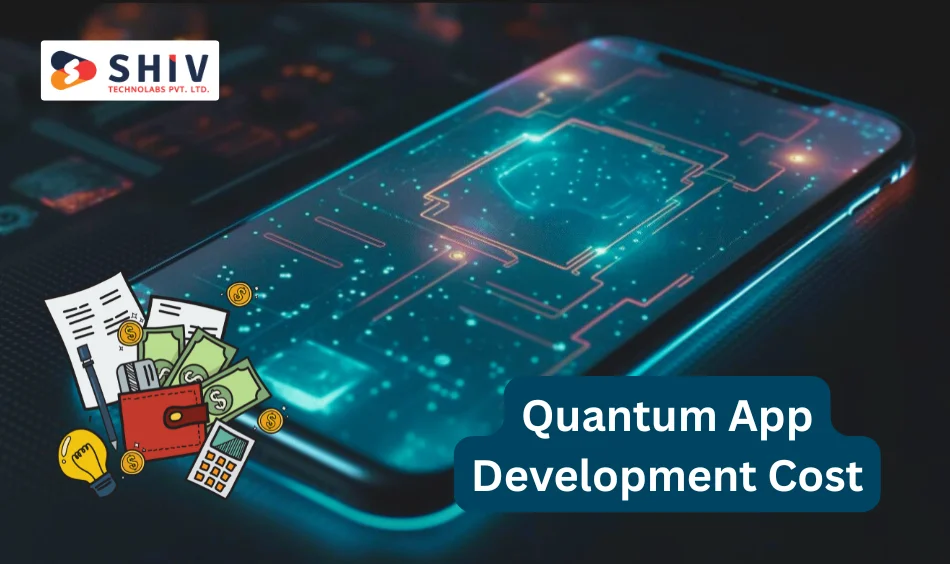Table of Contents
Technology is changing fast. One of the latest advancements is the development of quantum apps. This method uses the power of quantum computing to build apps. These apps solve complex problems faster than traditional apps. Companies are now exploring this technology to stay ahead in the business world.
And now quantum computing is no longer a matter of science fiction. It is real and growing. The global market for quantum computing was above $1.36 billion in 2024. It demonstrates the industry’s seriousness, as it is projected to be worth $5.3 billion by 2029.
This article aims to discuss quantum app development, its features, and costs.
What is Quantum App Development?

The process of building software designed to run on a quantum computer is known as quantum application development. Quantum computers differ from traditional computers, and instead of using bits, they utilise qubits. They may exist in more than one state at once. It enables quantum computers to solve problems much faster than classical computers would take months or years to solve. As this field grows, companies offering advanced solutions, including mobile app development services, are also exploring ways to integrate quantum capabilities into next-generation applications.
To develop the quantum computing app, programmers utilise specific tools and programming languages. Specifically, these apps are great for data-intensive tasks like finance, healthcare, and logistics. Big companies like Google and IBM are already at work on quantum apps.
# Key Features of Quantum App Development
1. High Processing Power
Quantum apps can solve problems that normal apps cannot. They handle large datasets and complex models quickly.
2. Parallel Computing
Qubits allow parallel processing. It means apps can run several tasks at the same time. This speeds up the work.
3. Advanced Security
Quantum app security features use quantum encryption. It protects data from cyberattacks better than traditional systems.
4. Smart Optimization
Quantum apps excel at finding the optimal solutions. They help in supply chains, stock predictions, and route planning.
5. Real-Time Simulation
For industries such as pharmaceuticals, aerospace, and materials science, they support real-time simulations.
# Quantum App Development Technologies
Developers use many quantum app development tools to build these apps. These tools connect quantum hardware with software layers.
- IBM Qiskit – An open-source framework for writing quantum programs.
- Microsoft Q# – A special programming language for quantum logic.
- Google Cirq – A Python library for building quantum circuits.
- D-Wave Ocean SDK – Used for building quantum apps on D-Wave systems.
All these frameworks help developers create stable and scalable quantum software.
# Quantum Programming Languages
Quantum apps need special coding languages. Some of the most used quantum programming languages include:
- Q# (by Microsoft)
- Quipper
- Qiskit Python SDK
- Cirq (Python-based)
These languages are not hard to learn if you already know Python or C++. Developers use these to connect quantum hardware with the apps they build.
# Benefits of Quantum App Development
Quantum computing is revolutionizing how applications are built, offering unprecedented advantages in speed, security, and decision-making.
1. Speed
Quantum apps solve tasks faster than traditional apps. This saves time and boosts performance.
2. Accuracy
They offer higher accuracy for complex problems like simulations, predictions, or analysis.
3. Better Decision-Making
Quantum logic helps businesses make smarter decisions by analyzing large datasets.
4. Data Security
Quantum encryption adds a strong layer of safety. This is useful in finance and defense.
5. Future-Proof Technology
As technology grows, quantum systems will replace some traditional systems. Early adoption can give a big edge.
Quantum Computing vs Traditional App Development
| Feature | Quantum App Development | Traditional App Development |
|---|---|---|
| Processing Unit | Qubits | Bits |
| Speed | Very fast | Moderate |
| Data Handling | Handles complex datasets | Handles simple data |
| Programming Languages | Q#, Qiskit, Cirq | Python, Java, C++ |
| Security | Quantum encryption | Standard encryption |
| Cost | High (still evolving) | Lower and stable |
# Quantum App Scalability Solutions
Quantum apps are still in the early stage, but they are designed to scale. Developers utilise specialised quantum app development frameworks that support the growth of data and functions. Hybrid cloud models enable the integration of quantum and classical systems.
Over time, companies will see more scalable business applications for quantum computing. These include fraud detection, credit risk analysis, and medical research.
# Quantum App Development Timeline
The timeline depends on many factors. These include project size, technology stack, and use case.
- Basic prototype – 3 to 5 months
- Mid-level app – 6 to 9 months
- Advanced app with real integration – 10 to 14 months
The timeline also depends on testing, debugging, and integration with classical systems.
Quantum App Development Cost

Quantum app development cost is high. It is because the tools, experts, and hardware are still rare.
- Basic app: Starts from $50,000 to $90,000
- Mid-level app: Around $100,000 to $180,000
- High-end app: Can go beyond $250,000
Quantum computing integration cost also adds up. Hardware and simulation environments are expensive. IBM Quantum and AWS Braket offer pay-as-you-use pricing, making them more cost-effective to use.
# Quantum Mobile App Development Pricing
Mobile apps using quantum computing are rare. But a few are in research or pilot stages. Quantum mobile app development pricing can vary a lot.
- Small tools using quantum APIs: $30,000 to $50,000
- Custom mobile apps with backend quantum support: $80,000 to $150,000
These apps usually connect to cloud-based quantum processors.
# Quantum App Development for Business Use
Many companies now explore quantum app development for business benefits.
- Finance: Portfolio optimization, fraud detection
- Healthcare: Drug development, gene mapping
- Retail: Predictive analytics and customer behavior
- Logistics: Smart routing and delivery planning
A 2023 report by Statista says over 38% of businesses in tech and pharma are testing quantum systems. This shows how useful these apps can be in the real world.
# Quantum App Development Challenges
- Lack of skilled developers
- Expensive tools and hardware
- Need for strong backend systems
- Limited integration support
But as the industry grows, quantum app development company services are improving. Many tech firms now offer training and platforms to support new developers.
Conclusion
Quantum app development is no longer a thing of the future. It’s here, and it’s growing fast. Businesses that adopt this technology early will gain significant benefits. Although the cost is still high, the return on investment can be significantly greater in the long run.
As more tools become available, the development process will also get easier and faster. The cost of developing quantum computing software may decrease, but its performance value will only rise.
If your business wants to explore the next level of app technology, quantum apps are the answer. To get expert help and affordable solutions, contact Shiv Technolabs, a trusted quantum app development company that builds innovative, secure, and scalable applications.






















